Touch of Baranja Photo Exhibition in Zagreb Until End of April
April 21, 2021 - A Touch of Baranja showcases 20 photos of the Baranja region to promote this rich natural and cultural site to both domestic and foreign visitors.
If you want to experience a touch of Baranja, but you're stuck in Zagreb, the city's Flower square (Cvjetni trg) offers you a compromise.
Dodir baRAnJe (A Touch of Baranja), an outdoor photo exhibition that will remain open until the end of April, highlights 20 photos of beautiful Baranja.
''A picture says a thousand words, so this is how we decided to present the beauty of Baranja and motivate Zagreb's citizens and their guests to visit the region located between the Danube and Drava rivers next to the border with Hungary to have a proper break,'' says the website of the Baranja Tourist Board.
The Tourist Board, along with Tourist Boards of Draž and Bilje-Kopački Rit hosted the event.
Nenad Milić, Dubravko Franjin, Romulić&Stojčić Studio, Mario Đurkić, and Zvonimir Janković are the photographers whose work is being featured in the exhibition. Below every photo, there is a QR code that offers an explanation of the photo both in English and Croatian, and in the evening, the photos are illuminated by solar power collected during the day.
As written by the Explore Croatia site, Baranja is special for its display of multiculturalism of the people who live there and who have previously passed through the territory. Tradition and cultural heritage in the area have survived the challenges of time, and nowhere is that more visible than in Baranja's cuisine.
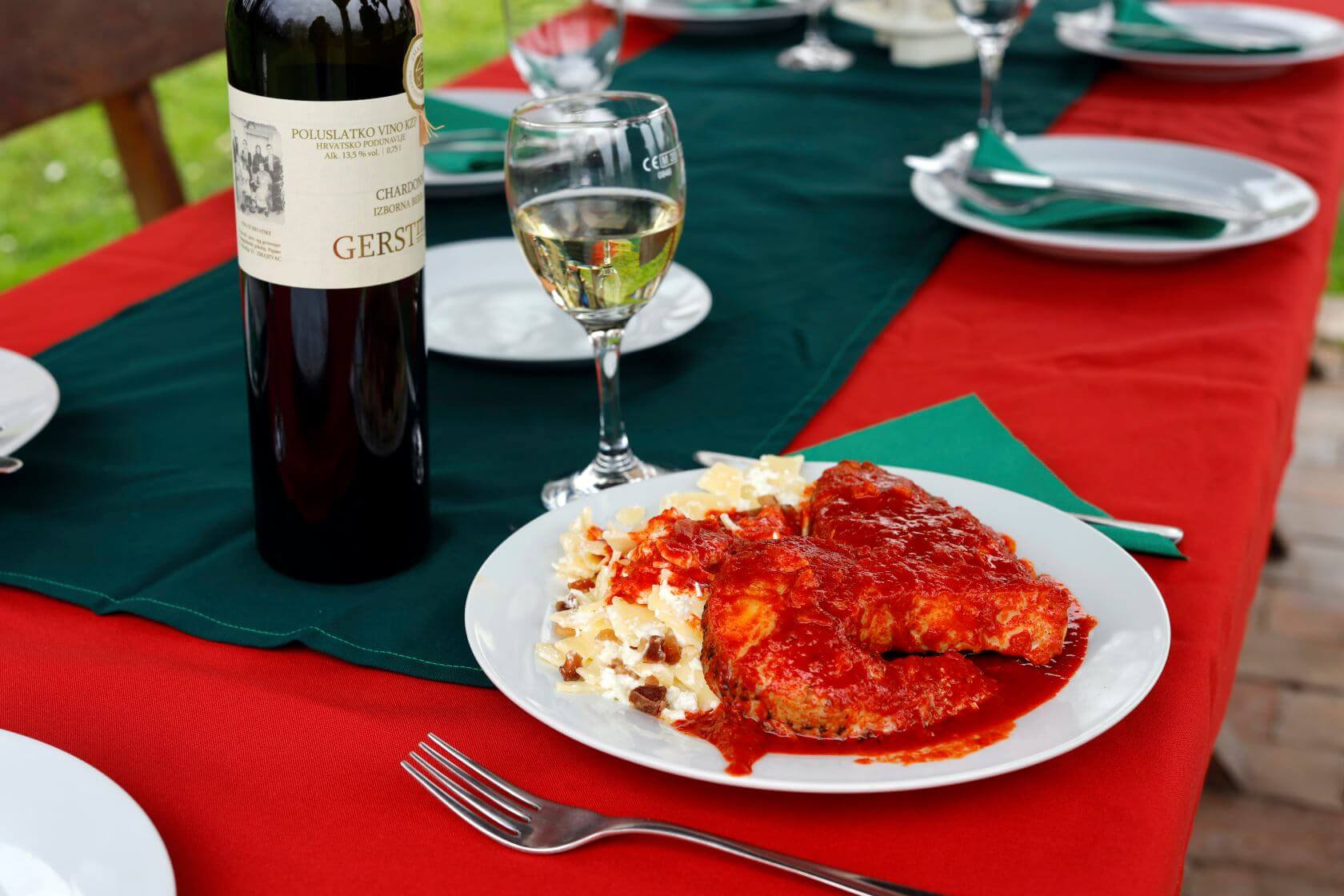
© Visit Baranja
''Baranja continues to remain a special destination which will tell the traveller various stories about tradition, family, life secrets, love, death, wines, hot peppers, specific fishing, weddings…“, explains the Explore Croatia site.
Baranja also offers the richness of nature as it is surrounded by rivers and the Kopački Rit swamp and bird reserve that is home to a wide and impressive variety of animals and plants, representing a real treat for the dedicated traveller.
When in Baranja, make sure to try the delicious Fiš Paprikaš, Baranja's own local Kulen recipe, and carp prepared in a delicious way only Baranja knows how to do.
Learn more about Croatia's food on our TC page.
For more about travel in Croatia, follow TCN's dedicated page.
VukovART 2021 to Return Art, Culture and Joy to the City of Vukovar
April 20, 2021 - With a five-year tradition already in place, VukovART 2021 promises a month of fun and exciting activities for Vukovar with visual eye candy as souvenirs to last.
A unique concept in the culture and art of Vukovar, the VukovART festival will be held from May 15 all the way to June 15, writes HRTurizam.
With a five-year tradition, the streets and squares of Vukovar will once again host numerous exhibitions and workshops, debates, children's programs, film, and literary programs, panel discussions, colorful lectures, and concerts. This event, organized by the City of Vukovar and Val Kulture association, co-financed by the European Social fund, promotes Vukovar as a Port of Art, changing the visual identity of the city making it a beautiful place to live. In addition to the local community, tourists also enjoy the eye candy of the city's open-air gallery. Artists Boa Mistura (Spain), BustArt (Switzerland), Jana Brike (Latvia), Mr Woodland (Germany), Victor Splash (Russia), Artez (Serbia), Juandres Vera (Mexico), Kerim Musanović (Bosnia and Herzegovina), Marion Ruthardt from (Germany), and Croatia's own Forest are ten artists who will come this year to give their contribution to the growing visual content of the city.
The festival will be opened by a beloved Croatian band Vatra (Fire), with performances of Mia Dimšić, musical composition CLUE, and vocal composition Watercolor in the following days too. During every larger event of the festival, „a superb craft scene and street food“ offers will be offered to visitors too.
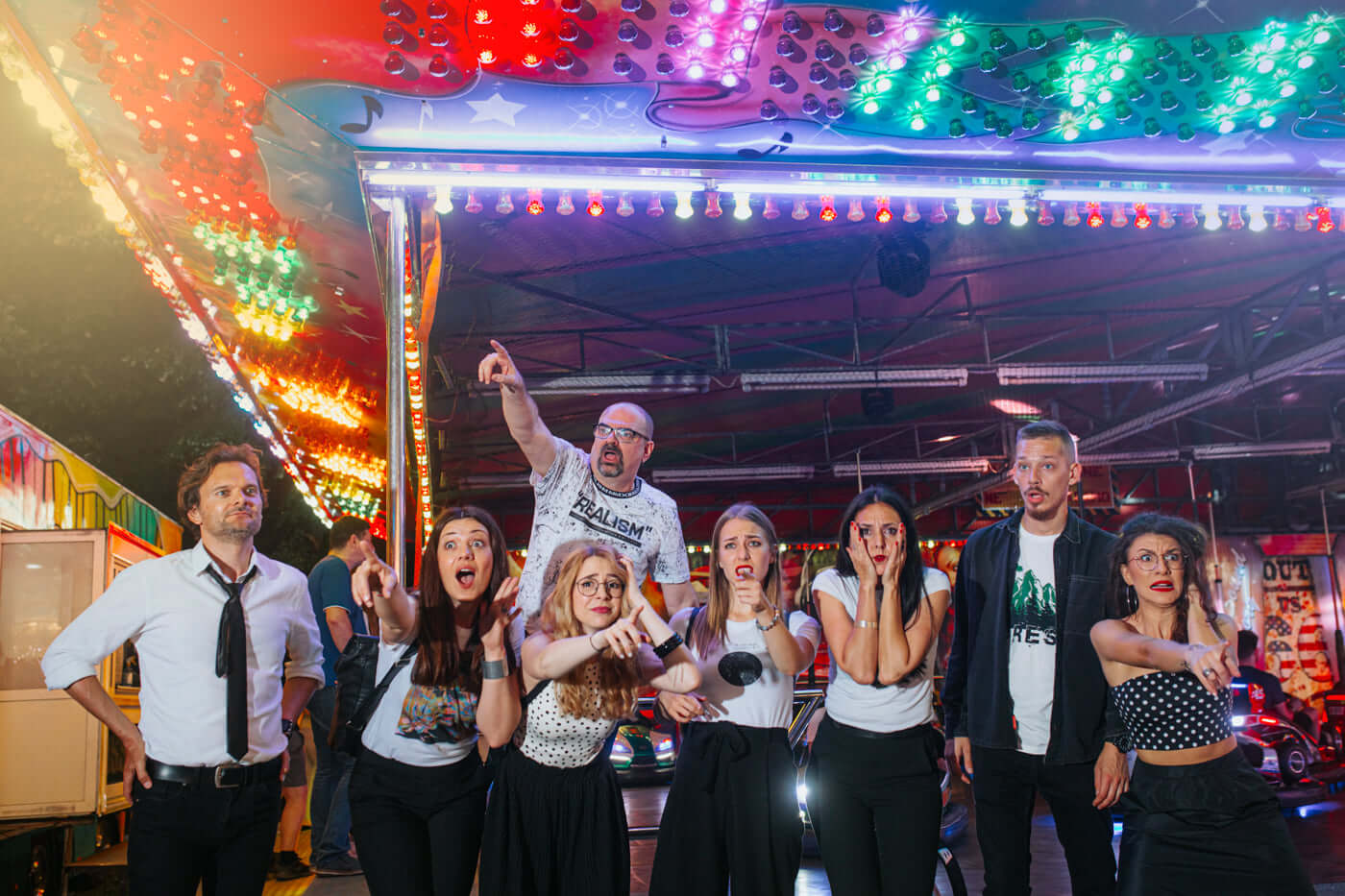
© VukovArt - Art Harbour
Famous Croatian singer from Psihomodo Pop with a neck in painting as well, Davor Gobac will exhibit his paintings and also host Motivational and Art Workshop for children.
„There will also be an active weekend led by the Vukovar Half Marathon, and for a slightly more relaxing activity, a bicycle race will be organized to tour previous works of art“, says HRTurizam article.
Domagoj Jakopović Ribafish, Dusan Bučan, and Robert Knjaz will host travel lectures and the full program and more details can be found on VukovART official website and on social networks.
Learn more about Croatia's festivals on our TC page.
For more about Made in Croatia, follow TCN's dedicated page.
April Marks End of Rijeka 2020 European Capital Of Culture Program
April 2, 2021 - The Rijeka 2020 European Capital Of Culture program ends this month.
Due to the coronavirus outbreak that started just a month after the official inauguration, the title of European Capital of Culture for Rijeka was extended until April 2021.
The Croatian National Tourist Board reports that over 50 cultural and artistic events will be held in Rijeka during April, the month that represents a kind of finale of the European Capital of Culture program, which the audience will be able to attend under controlled conditions and with respect for epidemiological measures.
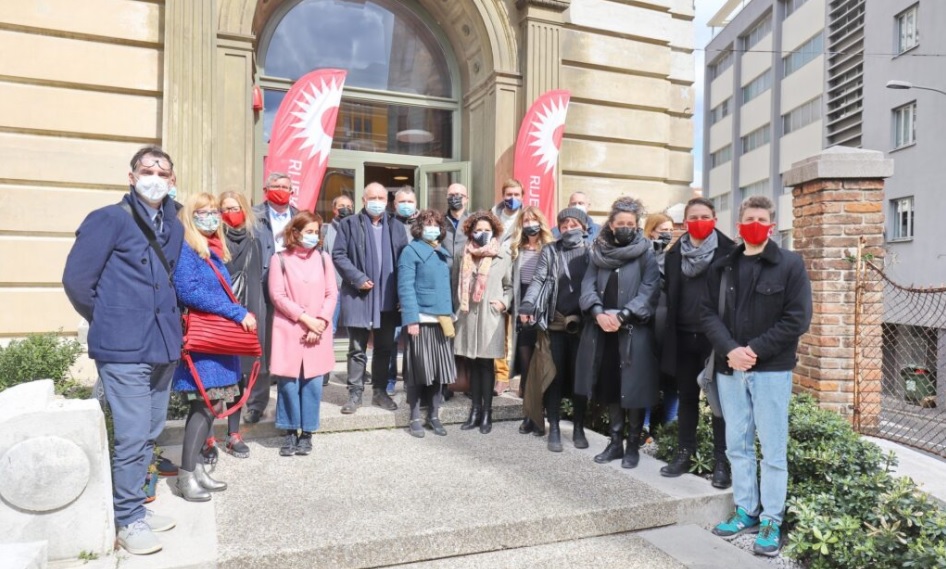
Credit: Rijeka2020.eu
Namely, for both the cities of Rijeka and Galway (Ireland), due to the outbreak of the COVID-19 pandemic and the inability to fully implement the originally planned program during 2020, the titles of European Capitals of Culture have been extended until the end of April 2021. Thus, the rich April program, which will officially mark the end of the European Capital of Culture project for 2020, will include plays, concerts, and programs in the theater. Themed guided walks around the city will be organized every weekend, as well as openings of permanent installations, exhibitions, programs in the newly opened Children's House, and similar events.
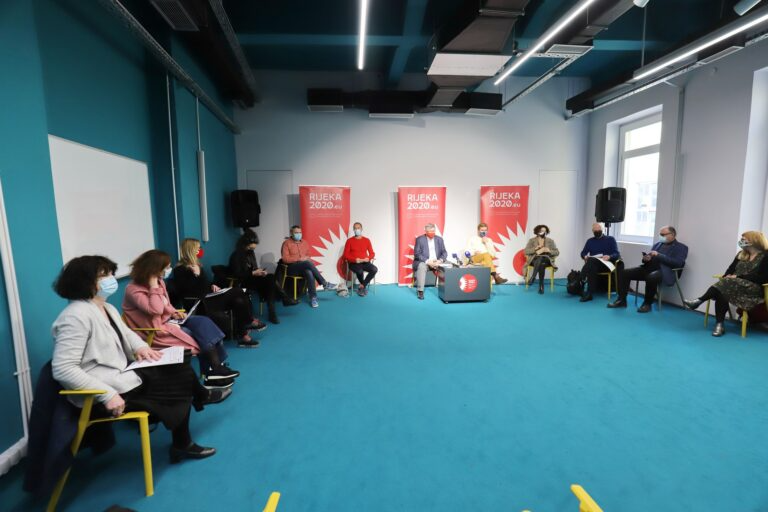
Credit: Rijeka2020.eu
Numerous events continue to take place after April, such as the exhibition ‘‘Unknown Klimt: Love, Death, Ecstasy’’, which brings Klimt's early works, paintings that were dismantled from the vault of the Ivan pl. Zajc Theatre in order to be restored and exclusively displayed in an exhibition in the newly renovated 18th-century palace, which was recently moved into by the Museum of the City of Rijeka, will remain open.
All events are organized in accordance with current epidemiological measures, but will also be adapted to any new measures and recommendations if necessary.
You can check and download the Rijeka European Capital of Culture Extended 2021 Programme here.
For more about travel in Croatia, follow TCN's dedicated page.
Guarantees for Culture and Creative Industry Extended Until End of June
ZAGREB, 18 March, 2021 - The government on Thursday decided to extend its loan guarantee programme for enterprises in the field of culture and the creative industry until 30 June this year.
The programme foresees HRK 300 million in loans with guarantees of 100% of the principal and a maximum amount of €800,000 per applicant. The shortest period of the guarantee is one year and the most five years, which includes a one-year grace period.
Minister of Culture and Media Nina Obuljen Koržinek recalled that the government adopted the guarantee programme for enterprises in culture and the creative industry in July last year, which was the first time in history.
Considering that the pandemic situation has continued, the government has decided to extend the guarantee programme until 30 June, said the minister and added that preparations are underway to extend the programme until the end of 2021.
The loan guarantee programme is earmarked for SMEs in the field of culture and creative industry affected by the coronavirus pandemic.
The programme is aimed at securing additional liquidity for micro, small and medium-sized enterprises in culture and the creative industry at a decreased interest rate and/or fewer collateral required.
The programme is based on the European Commission Temporary Framework to support economy in the context of coronavirus outbreak. It was approved by the Commission on 17 June 2020 and adopted by the government on 2 July 2020.
Following amendments on 13 October 2020, the Commission enabled member states to extend the duration of state support until 30 June 2021, the government explained.
For more about politics in Croatia, follow TCN's dedicated page.
VIDEOS: Amazing New Google Project Shows Croatian Culture to the World
September 18, 2020 - Incredible new video series explore Croatian culture, its natural assets, and the country's rich traditions, a collaboration with Google
Steeped in history and tradition, Croatian culture is incredibly diverse. Recognised as being of high value to the country's appeal and its understanding of itself, many items from this rich heritage appear on the protected UNESCO list.
The Croatian National Tourist Board has teamed up with Google Arts & Culture and partners The Museum of Arts and the Museum of the Sinjska alka to produce an incredible series of videos that explore this cultural heritage.
From arts & crafts to music and dance, natural assets and architecture, the new videos show off the rich menu of traditions assets that make Croatia such an incredible country. With so many items included on the protected UNESCO list, there's always something more you can learn about Croatia, no matter how many times you visit.
Lace-making, costumes of folklore, ancient instruments, time-honoured recipes, beloved festivities and distinct, regional styles of music are just some of the facets of Croatian culture explored in the videos. Now, people from all over the world can explore Croatian culture and heritage before they even arrive. The menu of videos and accompanying media is presented in both English and Croatian.
Some of the videos in the series are not new, but they have been selected by the Croatian National Tourist Board for inclusion as they are the best at showcasing their particular aspect of Croatian culture. Alongside the video presentations, there are a wealth of photographs and informative texts. You can view the whole new collaboration with Google Arts & Culture here
For the latest travel info, bookmark our main travel info article, which is updated daily.
Read the Croatian Travel Update in your language - now available in 24 languages
Theatre in Croatia: Stalin Gets Mail in Zagreb
Just like theatre all over the globe, and especially in smaller countries in which plays are performed in shall we say, a ''small'' language, it must fight for a wider attention. Theatre in Croatia is no different.
Fewer and fewer mainstream media outlets find it adapt to be paying the critics, portals mainly try to cover daily politics, sports and calamities, and arts, in general, appear and disappear, often as surrogates in the days when sensations fail to occur.
Yet, without theatre, without film, without music, painting, sculptures, without poetry... how would we be able to escape reality for an hour or two, what could we connect our reveries to? (not talking about a new house and a big car here!). In theatre, for example, one not only detaches from the reality of his bills and bank statements, one also learns, about many, many things. For instance, the other day we learned that Stalin loved theatre. This historical fact is surprising for everybody’s image of him.
Theatre in Croatia is, despite obstacles, very much alive.
Some public theatres are very old, and are still there and continue producing, and, of course, alongside them there is a multitude of small, private theatre groups, professional or not, and in almost every bigger place.
Having managed a public theatre myself (meaning: major costs covered by the public budget), I've always admired those small private theatre enterprises that have chosen to make things happen and fight for their own, independent existence. And so, thanks to Stalin, we had an occasion to get into a friendly chat with one of those who dare. His name is Marko Torjanac, an actor by education, born and raised in Zagreb. His father was a renowned actor as well, and there's no surprise there. To run a private theatre, however, is quite another story.
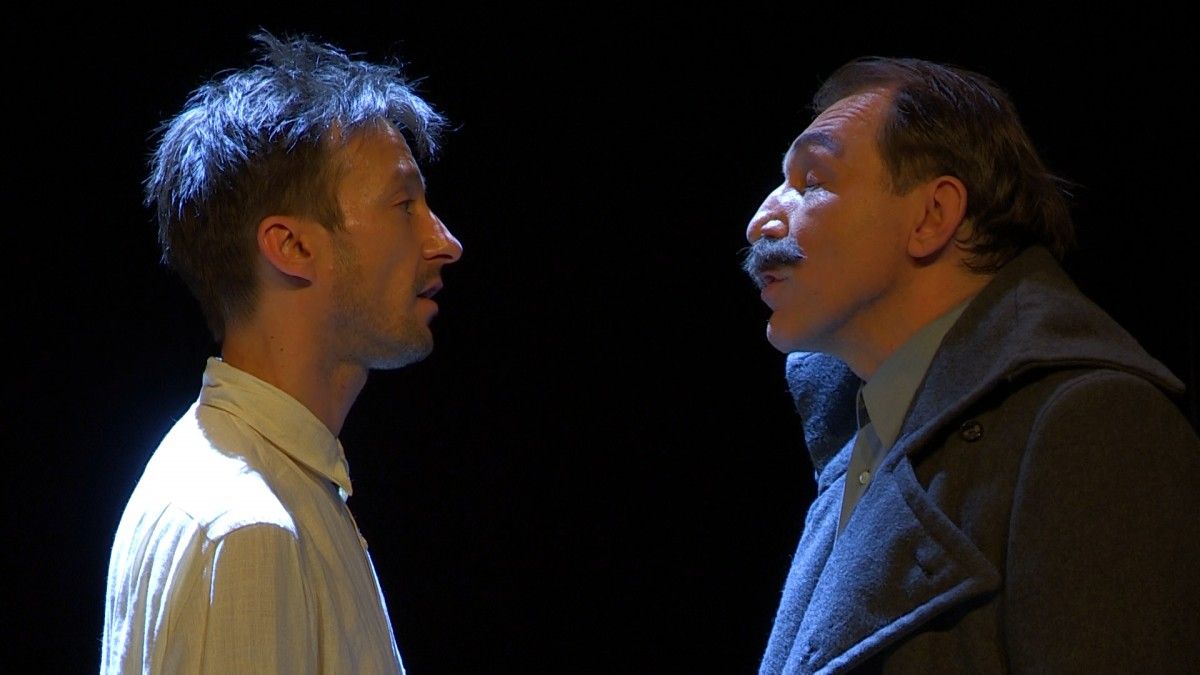
''I was somehow never happy with what was going on those big stages. First as an actor, because to be on a payroll in a pubic theatre means not to be able to choose your roles, you have to do what you're told. Also, big theatres are bound to like big productions, the famous authors, so you can see Chekhov, Shakespeare and the likes all over the place. Very important, of course. Yet, theatre has so many messages to convey and therefore it has to be much more mobile, more elastic, much more accessible and possibly, coming to the audience, not vice versa.
So, I founded my ''Planet Art'' Theatre twelve years ago, and, well, we're still sailing,'' smiles Marko.
Does it mean you're only a founder and an actor?
Of course not! At first I had two people on staff to assist in the business side, like ticket sales, publicity and marketing, but as times have become more difficult, I have become all of those, a manager, a ticket sales director, a publicity manager, a stage hand, a technical manager, some kind of essential accountant, and what not. I was learning, and when in dire straits, one learns fast. My working day adds up to 15 or 16 hours sometimes. I'm not complaining, just at times I feel very, very tired.
How do you choose the plays?
I know many people from the world of theatre, many who follow theatre in various countries. They signal on something, either a production they have seen in Moscow, for instance, or they send a script. So I choose by my own feeling, what is there in some text to say to people, is it good enough to make them laugh, does it send a message worth the toil of the whole process, from asking for copyrights, to finding a good translator, to finding a proper cast, a costume designer, to posters and tickets.
We are here right after a truly wonderful production (Love Letters to Stalin) in which, as Stalin, you spend more than an hour under an obviously very heavy Soviet military coat and the moustache. You must be exhausted, but what made you put this text on stage?
Dehydrated, above all, but the applause of the audience is always rejuvenating, nourishing, rewarding enough for us not to feel tired. Love Letters to Stalin, theatre-wise, is a very simple production with only three characters, a desk and two chairs, but it's therefore so much more demanding for us actors. It's based on a true story about the correspondence between Stalin and Mikhail Bulgakov, the author of The Master and Margarita, considered one of the best novels of the entire 20th century, started by Bulgakov when after quite some time of having been banned from public life, he understood that the only possible help could come from Stalin himself.
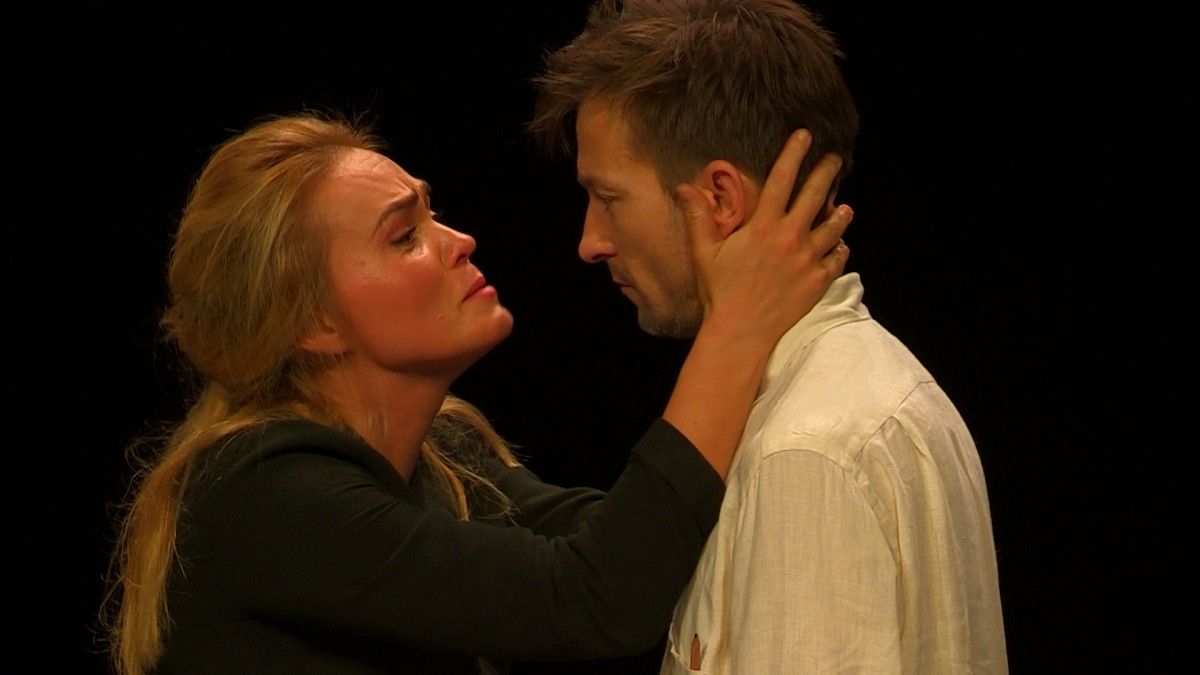
The text goes deep into the psychology - of a helpless writer who is not allowed to publish or to be staged, of a wife that tries to save both their lives and their mental health, and of a rude dictator, the absolute power that does understand the value of the writer, but needs to be begged for mercy over and over again, of a society of most absolute control over every individual in one of its most merciless forms. Arts must beg for mercy from the authority in every society, so to speak, with helplessness of an artist under a strict regime being the most cruel form of it.

It is obviously very easy for you to travel with this production? Are you planning on any tours?
Yes, of course we are, that's how we make our living mostly. We have three other productions that commute outside of Zagreb as well. And, yes, my personal longtime wish is to show what we do to our people abroad. We also have comedies and can truly make them laugh, too!
Thank you, Marko, and chapeau for the persistence and good, good work!
And as for any of you from abroad that plan on visiting Croatia, do not forget to check what is on in a theatre near you.
Make sure to follow our dedicated lifestyle page for more on theatre in Croatia, and all other aspects of life, culture and the arts.
Gašpina Mill: Why is Solin Attraction's Door Closed?
Could the mill's old doors be open once again any time soon?
Intangible Heritage of Croatia - Lastovski Poklad
TCN's Filipa Marušić gives us an intimate look at one of the island of Lastovo's incredible pieces of cultural heritage.
Long Live Saint Blaise! Dubrovnik Honours Patron Saint
Dubrovnik's patron saint and eternal protector is being celebrated in the Pearl of the Adriatic for the 1046th time.
2 in 3 Croats Don't Have a Love of Culture
Here's a question: do you have a habit of attending cultural events (cinema, theatre, museum, gallery, historical site, live performances) at least once a year?


